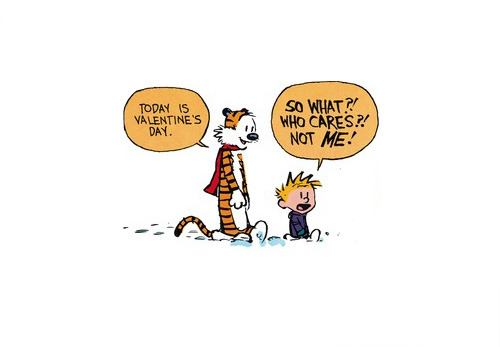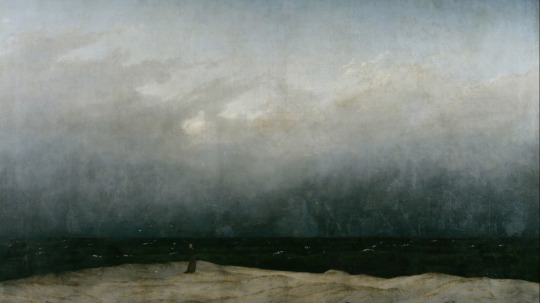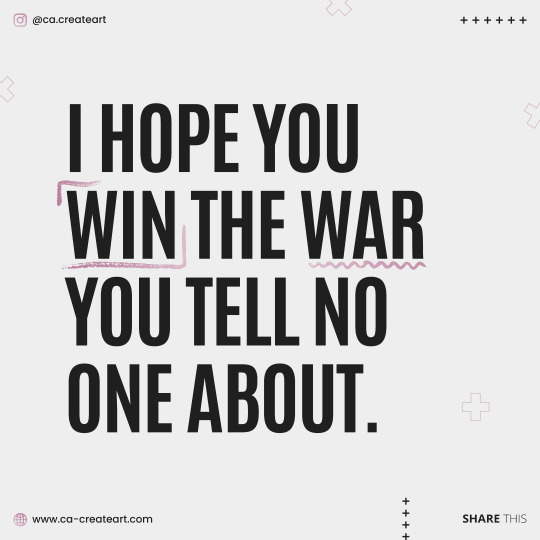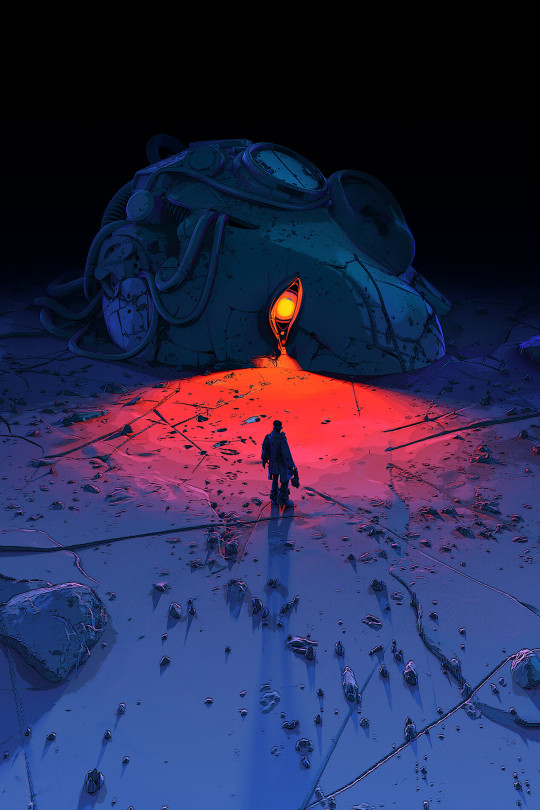Text
Very few self-improvement products even hint at the transforming self as a possibility. Competition and independence are the primary goals for most individualistic thinking. The reason self-improvement products rarely teach at the higher and more contextual levels is simple: We live in a highly individualistic culture. The individual is the focus and the obsession. As a country, America is in peril of collapse because the greater whole and purpose have been forgotten. We are no longer a united body but a group of isolated individuals with no sense of the environment we’ve created. Unwittingly, that environment is now shaping us.
0 notes
Text
the lesson of the moth by archy (a poem by Don Marquis)
(The character of Archy, created by Don Marquis in 1916, was a cockroach who had been a poet in a previous incarnation. To write he must leap headfirst onto the keys of a typewriter, and thus is unable to capitalize his letters.)
i was talking to a moth
the other evening
he was trying to break into
an electric light bulb
and fry himself on the wires
why do you fellows
pull this stunt i asked him
because it is the conventional
thing for moths or why
if that had been an uncovered
candle instead of an electric
light bulb you would
now be a small unsightly cinder
have you no sense
plenty of it he answered
but at times we get tired
of using it
we get bored with the routine
and crave beauty
and excitement
fire is beautiful
and we know that if we get
too close it will kill us
but what does that matter
it is better to be happy
for a moment
and be burned up with beauty
than to live a long time
and be bored all the while
so we wad all our life up
into one little roll
and then we shoot the roll
that is what life is for
it is better to be a part of beauty
for one instant and then to cease to
exist than to exist forever
and never be a part of beauty
our attitude toward life
is to come easy go easy
we are like human beings
used to be before they became
too civilized to enjoy themselves
and before i could argue him
out of his philosophy
he went and immolated himself
on a patent cigar lighter
i do not agree with him
myself i would rather have
half the happiness and twice
the longevity
but at the same time i wish
there was something i wanted
as badly as he wanted to fry himself
archy
0 notes
Text
Life-Learnings from The Marginalian
1. Allow yourself the uncomfortable luxury of changing your mind. Cultivate that capacity for “negative capability.” We live in a culture where one of the greatest social disgraces is not having an opinion, so we often form our “opinions” based on superficial impressions or the borrowed ideas of others, without investing the time and thought that cultivating true conviction necessitates. We then go around asserting these donned opinions and clinging to them as anchors to our own reality. It’s enormously disorienting to simply say, “I don’t know.” But it’s infinitely more rewarding to understand than to be right — even if that means changing your mind about a topic, an ideology, or, above all, yourself.
2. Do nothing for prestige or status or money or approval alone. As Paul Graham observed, “prestige is like a powerful magnet that warps even your beliefs about what you enjoy. It causes you to work not on what you like, but what you’d like to like.” Those extrinsic motivators are fine and can feel life-affirming in the moment, but they ultimately don’t make it thrilling to get up in the morning and gratifying to go to sleep at night — and, in fact, they can often distract and detract from the things that do offer those deeper rewards.
3. Be generous. Be generous with your time and your resources and with giving credit and, especially, with your words. It’s so much easier to be a critic than a celebrator. Always remember there is a human being on the other end of every exchange and behind every cultural artifact being critiqued. To understand and be understood, those are among life’s greatest gifts, and every interaction is an opportunity to exchange them.
4. Build pockets of stillness into your life. Meditate. Go for walks. Ride your bike going nowhere in particular. There is a creative purpose to daydreaming, even to boredom. The best ideas come to us when we stop actively trying to coax the muse into manifesting and let the fragments of experience float around our unconscious mind in order to click into new combinations. Without this essential stage of unconscious processing, the entire flow of the creative process is broken. Most important, sleep. Besides being the greatest creative aphrodisiac, sleep also affects our every waking moment, dictates our social rhythm, and even mediates our negative moods. Be as religious and disciplined about your sleep as you are about your work. We tend to wear our ability to get by on little sleep as some sort of badge of honor that validates our work ethic. But what it really is is a profound failure of self-respect and of priorities. What could possibly be more important than your health and your sanity, from which all else springs?
5. As Maya Angelou famously advised, when people tell you who they are, believe them. Just as important, however, when people try to tell you who you are, don’t believe them. You are the only custodian of your own integrity, and the assumptions made by those that misunderstand who you are and what you stand for reveal a great deal about them and absolutely nothing about you.
6. Presence is far more intricate and rewarding an art than productivity. Ours is a culture that measures our worth as human beings by our efficiency, our earnings, our ability to perform this or that. The cult of productivity has its place, but worshipping at its altar daily robs us of the very capacity for joy and wonder that makes life worth living — for, as Annie Dillard memorably put it, “how we spend our days is, of course, how we spend our lives.”
7. “Expect anything worthwhile to take a long time.” This is borrowed from the wise and wonderful Debbie Millman, for it’s hard to better capture something so fundamental yet so impatiently overlooked in our culture of immediacy. The myth of the overnight success is just that — a myth — as well as a reminder that our present definition of success needs serious retuning. The flower doesn’t go from bud to blossom in one spritely burst and yet, as a culture, we’re disinterested in the tedium of the blossoming. But that’s where all the real magic unfolds in the making of one’s character and destiny.
8. Seek out what magnifies your spirit. Patti Smith, in discussing William Blake and her creative influences, talks about writers and artists who magnified her spirit — it’s a beautiful phrase and a beautiful notion. Who are the people, ideas, and books that magnify your spirit? Find them, hold on to them, and visit them often. Use them not only as a remedy once spiritual malaise has already infected your vitality but as a vaccine administered while you are healthy to protect your radiance.
9. Don’t be afraid to be an idealist. There is much to be said for our responsibility as creators and consumers of that constant dynamic interaction we call culture — which side of the fault line between catering and creating are we to stand on? The commercial enterprise is conditioning us to believe that the road to success is paved with catering to existing demands — give the people cat GIFs, the narrative goes, because cat GIFs are what the people want. But E.B. White, one of our last great idealists, was eternally right when he asserted half a century ago that the role of the writer is “to lift people up, not lower them down” — a role each of us is called to with increasing urgency, whatever cog we may be in the machinery of society. Supply creates its own demand. Only by consistently supplying it can we hope to increase the demand for the substantive over the superficial — in our individual lives and in the collective dream called culture.
10. Don’t just resist cynicism — fight it actively. Fight it in yourself, for this ungainly beast lies dormant in each of us, and counter it in those you love and engage with, by modeling its opposite. Cynicism often masquerades as nobler faculties and dispositions, but is categorically inferior. Unlike that great Rilkean life-expanding doubt, it is a contracting force. Unlike critical thinking, that pillar of reason and necessary counterpart to hope, it is inherently uncreative, unconstructive, and spiritually corrosive. Life, like the universe itself, tolerates no stasis — in the absence of growth, decay usurps the order. Like all forms of destruction, cynicism is infinitely easier and lazier than construction. There is nothing more difficult yet more gratifying in our society than living with sincerity and acting from a place of largehearted, constructive, rational faith in the human spirit, continually bending toward growth and betterment. This remains the most potent antidote to cynicism. Today, especially, it is an act of courage and resistance.
11. A reflection originally offered by way of a wonderful poem about pi: Question your maps and models of the universe, both inner and outer, and continually test them against the raw input of reality. Our maps are still maps, approximating the landscape of truth from the territories of the knowable — incomplete representational models that always leave more to map, more to fathom, because the selfsame forces that made the universe also made the figuring instrument with which we try to comprehend it.
13. In any bond of depth and significance, forgive, forgive, forgive. And then forgive again. The richest relationships are lifeboats, but they are also submarines that descend to the darkest and most disquieting places, to the unfathomed trenches of the soul where our deepest shames and foibles and vulnerabilities live, where we are less than we would like to be. Forgiveness is the alchemy by which the shame transforms into the honor and privilege of being invited into another’s darkness and having them witness your own with the undimmed light of love, of sympathy, of nonjudgmental understanding. Forgiveness is the engine of buoyancy that keeps the submarine rising again and again toward the light, so that it may become a lifeboat once more.
14. Choose joy. Choose it like a child chooses the shoe to put on the right foot, the crayon to paint a sky. Choose it at first consciously, effortfully, pressing against the weight of a world heavy with reasons for sorrow, restless with need for action. Feel the sorrow, take the action, but keep pressing the weight of joy against it all, until it becomes mindless, automated, like gravity pulling the stream down its course; until it becomes an inner law of nature. If Viktor Frankl can exclaim “yes to life, in spite of everything!” — and what an everything he lived through — then so can any one of us amid the rubble of our plans, so trifling by comparison. Joy is not a function of a life free of friction and frustration, but a function of focus — an inner elevation by the fulcrum of choice. So often, it is a matter of attending to what Hermann Hesse called, as the world was about to come unworlded by its first global war, “the little joys”; so often, those are the slender threads of which we weave the lifeline that saves us.
Delight in the age-salted man on the street corner waiting for the light to change, his age-salted dog beside him, each inclined toward the other with the angular subtlety of absolute devotion.
Delight in the little girl zooming past you on her little bicycle, this fierce emissary of the future, rainbow tassels waving from her handlebars and a hundred beaded braids spilling from her golden helmet.
Delight in the snail taking an afternoon to traverse the abyssal crack in the sidewalk for the sake of pasturing on a single blade of grass.
Delight in the tiny new leaf, so shy and so shamelessly lush, unfurling from the crooked stem of the parched geranium.
I think often of this verse from Jane Hirshfield’s splendid poem “The Weighing”:
So few grains of happiness
measured against all the dark
and still the scales balance.
Yes, except we furnish both the grains and the scales. I alone can weigh the blue of my sky, you of yours.
16. Unself...
Somewhere along the way, in the century of the self, we forgot each other. We forgot this vast and wonder-filled universe, of which we are each but a tiny and transient wonder.
We forgot that all creative work — be it music or mathematics, poetry or physics, anything we might call art — is a hand outstretched in the dark, reaching not for visibility but for the light that lives between us. Reaching for connection.
We forgot what Whitman knew even as he proclaimed “I celebrate myself!” — that “every atom belonging to me as good belongs to you.” No word appears in Leaves of Grass more times than you.
We are living through a pandemic of selfing — rampant self-celebration that mistakes applause for connection, likes for love. Social media companies are capitalizing on our native need for affirmation, exploiting our compromised immunity to manipulation at every turn: algorithms prioritizing selfies over sunflowers, algorithms amplifying the word I, algorithms doping us on the dopamine of being noticed, seducing us into forgetting the art and joy of noticing — that crowning glory of consciousness. And somewhere, in the quiet core of our being, this frantic hunt for likes is making us like ourselves less.
There must be another way — a way to unself just enough to remember each other, to grow a little more awake to this world that shimmers with wonder, of which any one self is only a fleck.
Whatever that way is, it is not some new technology. Maybe it is a new ethic. Maybe it is the oldest ethic.
Here is what I propose:
As an experiment, for one continuous month, make the focus of one in every three things you share on social media — wherever you normally share, however regularly or irregularly you do, however many people you reach — something other than yourself or your own work: a friend’s art project, a stranger’s poem, a record by a musician you love, the tree shimmering with majesty and mystery in the low morning light, someone in your community you admire, a bygone pioneer of something you value, a book that spun you on your axis, the lost cat sign crayoned by a neighbor’s child, the new community garden a few blocks over, news of the dazzling galaxy discovered by the dazzling new space telescope a few million lightyears over.
Try it for a month — try it on like a shirt, see how it feels. And if you don’t feel that warm glow of generosity, that good glad feeling of making another’s day, or simply the relief of a small sabbatical from the tedium of the self, then you can always go back to the old way.
Wherever you land, it will not have been a wasted month.
17. Everything is eventually recompensed, every effort of the heart eventually requited, though not always in the form you imagined or hoped for. What redeems all of life’s disappointments, what makes all of its heartbreaks bearable, is the ability to see how the dissolution of a dream becomes the fertile compost of possibility. Buried between parentheses in the middle of Leaves of Grass is Whitman’s testament to this elemental truth, which turned his greatest heartbreak into his greatest masterpiece:
Sometimes with one I love I fill myself with rage for fear I effuse
unreturn’d love,
But now I think there is no unreturn’d love, the pay is certain one
way or another,
(I loved a certain person ardently and my love was not return’d,
Yet out of that I have written these songs.)
0 notes
Text
random thoughts...
If you can't keep yourself on track towards becoming the next best version of yourself, then you have no business being a coach
Decisions are not inherently good or bad, they're just trade-offs.
A way of life isn't always quantifiable.
Your mind isn't going to (passively) allow your body to be put into a situation that is dangerous, the (active) belief that you are ready to handle the pain or pressure associated with change will ease your mind enough and open it up to new possibilities. In other words, you have to actively believe things are possible before they happen. Randomness is more rare than most people think.
No "body" wants adversity, but the unfortunate (and possiblely beautiful) part about it all is that, in the absence of adversity, the body (or mind) will create it's own. We need something to challenge us, to grow out of. We need a catalyst for change, otherwise we're not alive. Death begins when growth ends.
Inspiration exists on a spectrum. Immense love or terrible pain. True art sits in the extremes, but it's expression is only enjoyed by those comfortably sat in the middle. The real tragedy is coming to the realization you're only entertained by the art and not creating it.
There's no goal that isn't achievable given the right timeline. Whether a million dollars or a million steps, all is possible with enough time. The next question is, how long do you want to wait? That will determine it's importance in your life.
As a coach you need mastery of the fundamentals, understanding of the specifics, and an ability to teach the concepts. And, most importantly be able to communicate each level effectively otherwise it all breaks down
Words are manipulation tools. They can also be weapons.
1 note
·
View note
Text
Carl Jung
from Undiscovered Self
“All mass movements, as one might expect, slip with the greatest ease down an inclined plane made up of large numbers. Where the many are, there is security; what the many believe must of course be true; what the many want must be worth striving for, and necessary, and therefore good. In the clamour of the many resides the power to snatch wish-fulfilments by force; sweetest of all, however, is that gentle and painless slipping back into the kingdom of childhood, into the paradise of parental care, into happy-go-luckiness and irresponsibility. All the thinking and looking after are done from the top; to all questions there is an answer, and for all needs the necessary provision is made. The infantile dream-state of the mass man is so unrealistic that he never thinks to ask who is paying for this paradise. The balancing of accounts is left to a higher political or social authority, which welcomes the task, for its power is thereby increased; and the more power it has, the weaker and more helpless the individual becomes.
Whenever social conditions of this type develop on a large scale, the road to tyranny lies open and the freedom of the individual turns into spiritual and physical slavery. Since every tyranny is ipso facto immoral and ruthless, it has much more freedom in the choice of its methods than an institution which still takes account of the individual. Should such an institution come into conflict with the organized State, it is soon made aware of the very real disadvantage of its morality and therefore feels compelled to avail itself of the same methods as its opponent. In this way the evil spreads almost of necessity, even when direct infection might be avoided. The danger of infection is greater when decisive importance is attached to large numbers and to statistical values, as is everywhere the case in our Western world. The suffocating power of the masses is paraded before our eyes in one form or another every day in the newspapers, and the insignificance of the individual is rubbed into him so thoroughly that he loses all hope of making himself heard. The outworn ideals of liberté, égalité, fraternité help him not at all, as he can direct this appeal only to his executioners, the spokesmen of the masses.
Resistance to the organized mass can be effected only by the man who is as well organized in his individuality as the mass itself.”
----
Liberté, égalité, fraternité" is the national motto of France. It is in French and translates to "Liberty, equality, fraternity" in English. These three principles are fundamental values that have played a significant role in French history and are associated with the ideals of the French Revolution of 1789.
Liberté (Liberty): This represents the value of freedom and individual rights. It emphasizes the importance of personal freedoms and civil liberties.
Égalité (Equality): This stands for the principle of equality before the law and the rejection of social and economic inequalities. It promotes equal opportunities and treatment for all citizens.
Fraternité (Fraternity): This signifies the spirit of brotherhood and solidarity among citizens. It emphasizes the importance of unity and working together for the common good.
These principles are enshrined in the French Constitution and reflect the core values of the French Republic. They continue to be important in shaping French society and politics.
---
youtube
1 note
·
View note
Text
342. seasons ending
intro
Life is an endless series of transition. To go from one thing to another, seasons must change. There’s never any complaint about the flowers that bloom in the spring after we make it through the winter. However, that awareness is often lost on ourselves. We, for whatever reason, avoid the challenge associated with change, and stay the same. Finding comfort in our discomfort, simply because it is familiar. Not until we realize it is us who control the transitional change within ourselves, can we see the bloom of the next season of our lives.
please read the following…
tl;dr
Swamp Thing is slowly dying from the bitter cold while trying to protect a young boy from the encroachment of an endless winter storm. The child persistently urges that Swamp Thing to keep pressing forward to avoid the Snow Monster. But in the end, Swamp Thing realizes the young boy is the real monster that keeps the winter from coming to an end. Upon this realization, he takes control, corrects his errors, and changes the ending of the story.
interpretation
Growth only happens at the rate of acceptance, which brings me to my interpretation of Swamp Thing: Winter Special.
We are the Swamp Thing — outwardly seen as the monster by the world. Created from our environment, gilded by our experience, and tied to the direction of the young child we carry with us. A winter storm exists within all of us — some more severe than others — but its duration is always within our control. The endlessness of the winter storm Swamp Thing faces, is matched with the persistence of the young child he carries with him. We all carry that young child with us in the form of childhood trauma.
For most of us, we clutch so tightly onto it that it becomes Us. So, we defend it at every turn, believing it needs to be protected more than it needs to be healed. It has the power to shape our identity and alter the course of our lives. It is a monster that resides in all of us. Keeping us in an endless storm of depression, sadness, or anxiety, while continuously encouraging us that holding on is better than letting go. It’s not.
The real monster — the wicked, destructive force — is the thing we cannot let go of, the thing that keeps us stagnant, the thing that keeps who we are, the thing that resists the natural transition of the seasons of life. It’s the young child from the story that Swamp Thing protects so faithfully. It’s the childhood trauma we all endure. Only when Swamp Thing came to the realization that the real monster was the child, was he able to break free from the winter storm.
Likewise, our childhood trauma has to be realized, accepted, and eventually dealt with for us to transition into the next version of ourselves. And for most of us, that will be one of the hardest things we’ll have to do. But for the endless winter to break, and the season to change, it’s really the only path towards a life we are so badly withstanding the storm for.
1 note
·
View note
Text
0 notes
Text
words i can’t say
I think about you everyday.
I have ever since the first day I saw you.
There was never anyone else.
You were everything I wanted.
I broke every part of myself trying to prove that to you.
Nothing worked.
You weren’t right for me.
I learned the hard way.
That a relationship is not a bandaid.
I don’t blame you for anything,
but it hurts all the same.
The future I had planned for us,
I have to erase.
That hurts the most.
I wanted to marry you.
I wanted our kids to have your smile,
your laugh.
I miss those parts of you the most.
I miss what could have been.
A real family.
A real love story.
I wish it ended differently. and,
I wish it never did.
But in reality, you’re the most beautiful chaos
I’ve ever known.
And there’s no place in my future
for things that don’t bring me peace.
Just know, that after it all,
you’ll always have a piece of my heart
because I chose to give it to you.
keep it,
and know that
I will always love you.
I don’t know how not to.
te amo.
0 notes
Text
341. set sail
Change is hard because it comes with a necessary acceptance that who you are isn’t who you want to be. It’s a constant battle with your ego which is always trying to bring you back to who you are right now, even if it is out of alignment with what you say you want. It’s a safety mechanism keeping you within familiar territory. So, while your actions may look like self-destruction on the outside, they’re actually your subconscious working to return you to a familiar version of yourself, or a place where it feels most comfortable.
There’s a saying that goes, “a ship is safe in harbor, but that’s not what ships are built for.” We are all on our own ship, possessing the possibility of journeying toward the person we wish to become. That journey requires us to embrace discomfort. To sail just far enough away from the harbor that we can throw out an anchor and sit long enough in a certain position that we realize it’s not so bad after all. And, then doing it all over again, until we arrive at the place where we initially set out to discover.
For systemic change to happen, progress has to be sustainable. It will require you to throw out an anchor along the way, reassuring yourself that the distance you’ve traveled — where you are today, while frightening new — is now who you are and choose to be. It will feel chaotic because waves of uncertainty will challenge your choices for attempting to break old patterns. It will feel unfamiliar because you are traveling outside the boundaries of the map you once used to guide your life. But you have to be okay with the discomfort of sailing outside the boundaries of the map you had for yourself so that you can start charting the new territory of the person you wish to become.
0 notes








